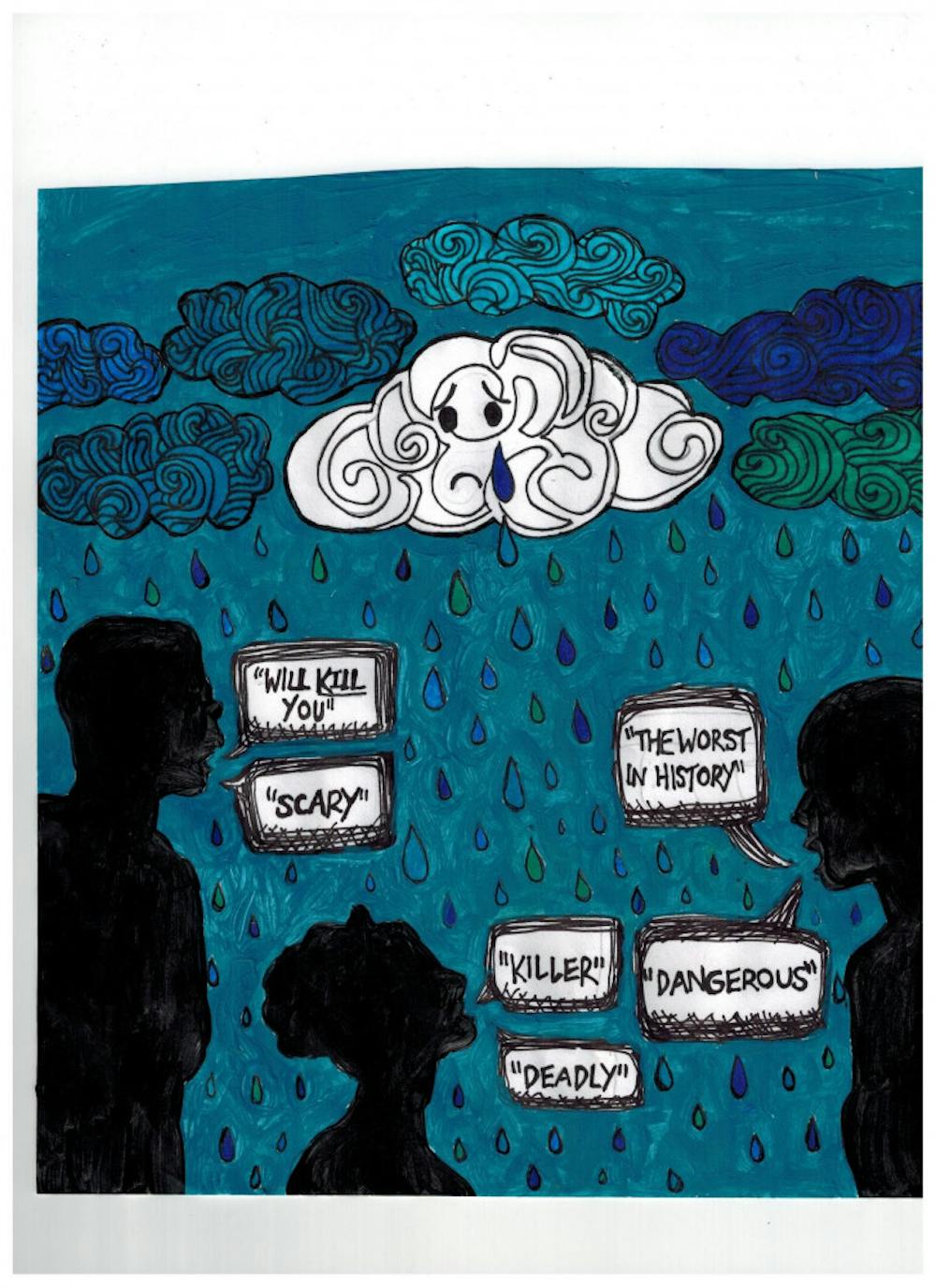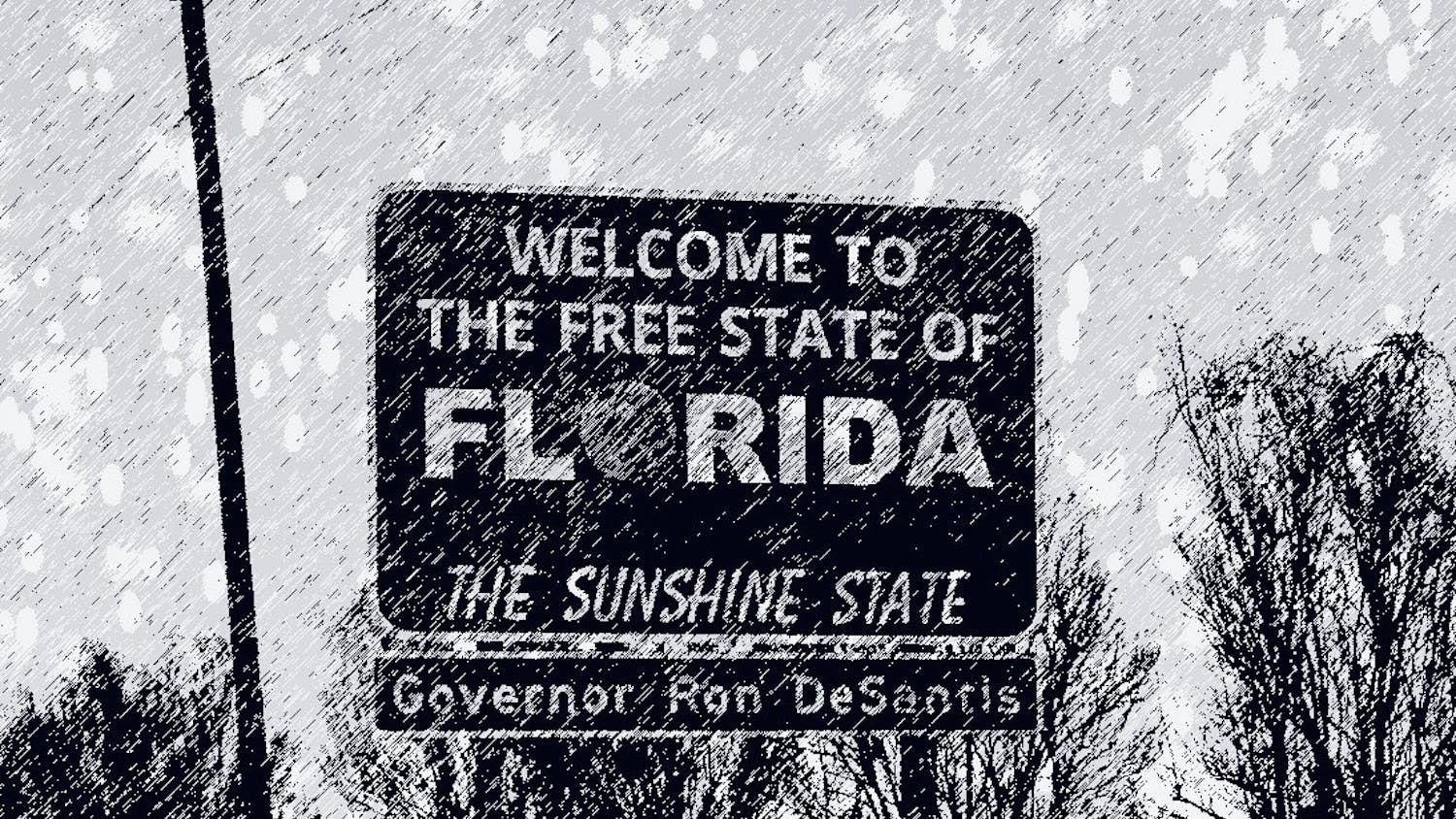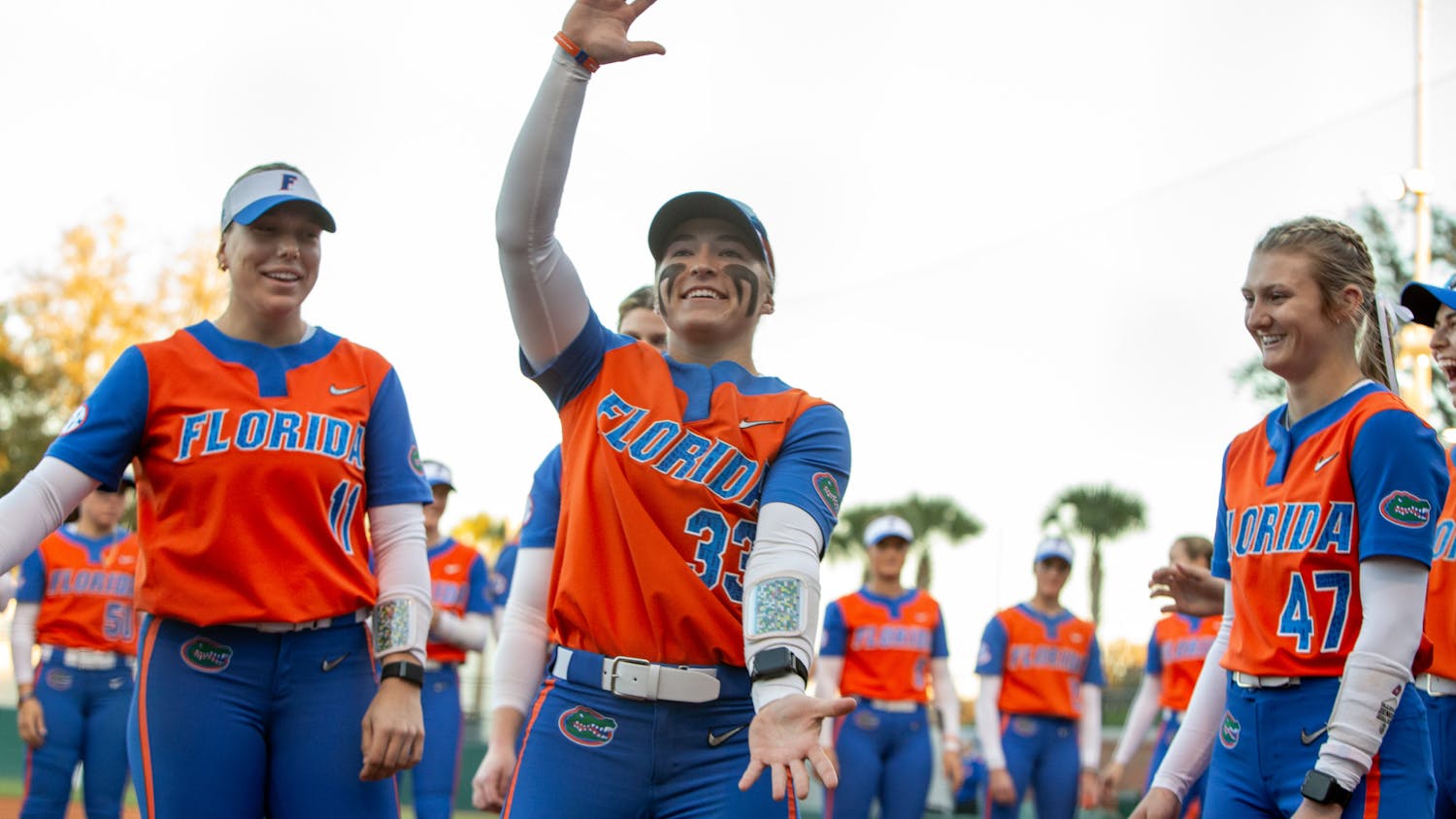Weather, as it turns out, is a lot like s---. It just happens.
One minute you’re prancing through town, dry as a bone and without a worry, when suddenly, you find yourself soaked to the britches in rainwater. Slippery, sad and sopping.
If you look closely, though, the changing weather can be as beautiful as it is unpredictable. There is something alluring about a distant thunderstorm stirring on the horizon, or a powerful hurricane brewing in the southern Caribbean.
The enveloping power of weather — and ultimately its effect on humankind — is perhaps the one thing that can truly mend human conflict and transcend political beliefs. We are all connected under one sky. We breathe the same air and drink the same water. My earth is your earth, and your earth, mine. Why, then, are we so afraid of the weather? The path to answer this question begins where most adventures tend to take their hold: In the pages of a children’s book.
I recently stumbled upon a copy of Dangerous Weather Phenomena To Look Out For! – a riveting collection of weather factoids written for the average 7-year-old. (Do not speculate as to why I was reading a book meant for kids — I do not tell you how to spend your Sunday afternoons). Deeply rooted in the pages of this children’s story, I found something particularly interesting: Nearly every storm, every natural phenomenon or act of nature, was painted in a rhetoric of doom and demise. Hurricanes were “killers,” lightning was “deadly” and, as the title of the book suggests, weather in general was simply “dangerous.”
And then — like a crack of lightning — it struck me: We as humans seem to lack a fundamental appreciation of the natural world around us. We are raised to fear nature rather than to respect it.
Take, for instance, Gainesville’s preparation for Hurricane Irma last year. Nearly a week before landfall, every gas station, Walmart and Publix was stripped clean of its water and “survival” supplies. Customers were buying one, two or three cases of water to stow away when the world fell into chaos. And yet — besides some strong wind and downed trees — Gainesville’s bout with Irma was relatively tame.
The same people who rushed to the grocery store to stock up on hurricane supplies were texting behind the wheel of their two-ton Cadillac death machine on their drive home. The irony was electric.
You see, we’ve become so accustomed to fearing the things we’re told to fear. A storm or meteorological event is “scary” or “deadly” or “the worst in history” when we are told so. In the face of a hurricane, we are commanded to evacuate our state or die like the naïve fools we are. After all, “Hurricane Matthew will KILL you” (Rick Scott, 2016).
Now, it’s no secret that these storms are powerful and can dish out personal damage if you’re not careful. That’s not the point here. The point is that we need to rethink how we approach our rhetoric when discussing natural processes.
Mainstream media and government officials paint hurricanes and other “extreme” weather as evil acts of natural terrorism, as if they haven’t been a part of our world for millions of years. Nature, and its constant state of change, is the front-runner on a long list of victims we are told to fear.
Of course, we tend to dominate the things we fear. Modern movies like “Geostorm” (2017) suggest that humankind can willfully change the course of nature with the help of technology. Want to stop a global hurricane? Easy! Just reboot your worldwide climate control satellites, and you’re good to go.
We take control of the things we are most afraid of. We hunt predators to the brink of extinction simply because we can, because we, after all, are the strongest beings to ever exist.
As Hurricane Florence barrels towards South Carolina, the first priority is and always will be safety. But in the midst of the chaos, while everyone floods the interstates and fills their gas tanks, shouldn’t we take a second to appreciate just how damn beautiful it really is?
The weather is a lot like s---. It happens.
Now let’s learn to respect it.
Max Chesnes is a UF journalism and sustainability studies senior.






